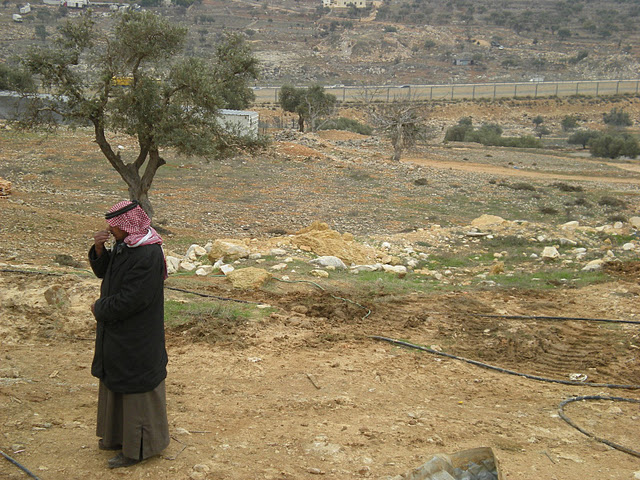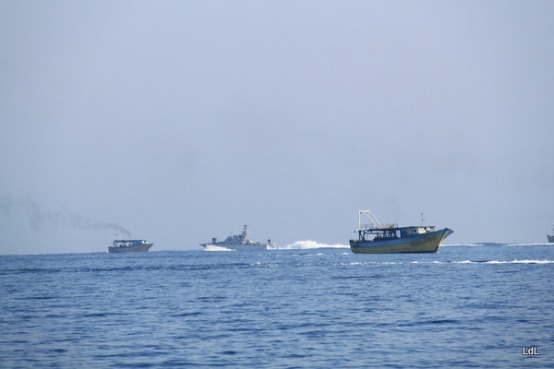Month: November 2011
-
Beit Hannina: House demolitions without warning
25 November 2011 | International Solidarity Movement, West Bank At 11 AM this Thursday the 24 of November, Mohammed Ka’abne and his family of Beit Hannina, were shocked by the arrival at their doorstep of an Israeli military unit accompanied by several police officers and two bulldozers. Without issuing any kind of eviction order, or…
-
Following night raids, Nabi Saleh continues to march for justice
by Aida Gerard 25 November 2011 | International Solidarity Movement, West Bank The Occupation Forces invaded An Nabi Saleh village three times injuring several people by shooting directly at demonstrators with tear gas canisters and rubber coated steel bullets on Friday, November 25th. Three people were arrested Wednesday in a night time raid earlier in the…
-
A day at sea with Gaza’s fishermen
by Lydia de Leeuw 26 November 2011 | A Second Glance



